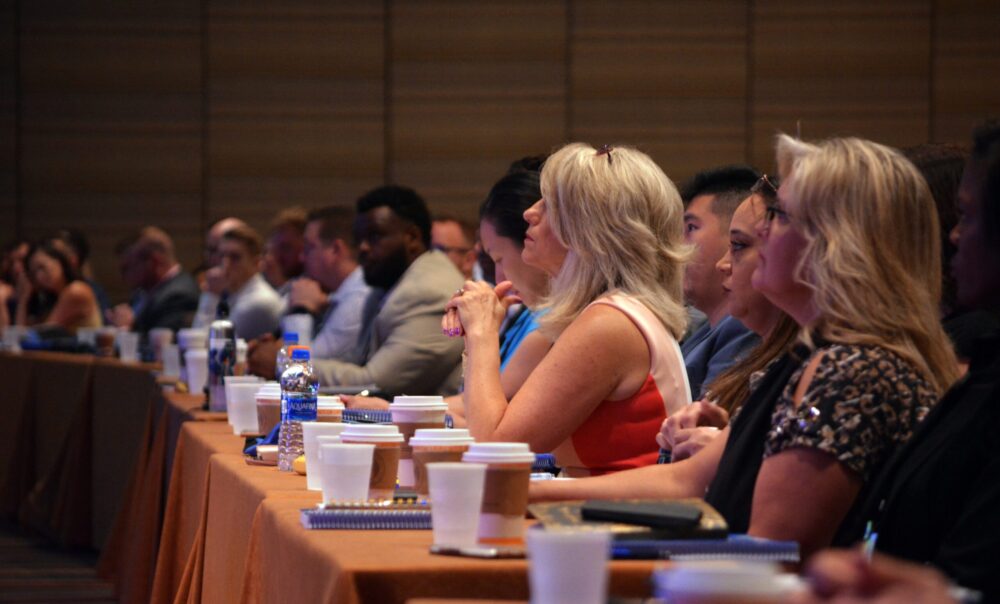Yorkshire Universities ‘One Year On’ Graduate Implementation Group Conference

It was somewhat ironic that ongoing train cancellations affected travel on the day that poor local transport links were highlighted at Yorkshire Universities (YU) ‘One Year On: Graduate Employability’ conference.
The hybrid event, which ran on 7 June, marked a year since the organisation released its report into Supporting Graduate Employment and Employability in Yorkshire.
The report looks at how the region can retain more of its graduate talent, and to ensure that learners are supported into good graduate destinations. The lack of good transport connectivity within the region was flagged as a continuing hinderance, and it was keenly felt by people who were unable to attend in-person because of it.
Despite this challenge, I found the event a useful opportunity to hear about YU’s work. I was also delighted to finally meet new colleagues in person, including those from Go Higher West Yorkshire’s (GHWY) member institutions who have become involved in our activity.
With GHWY being an organisation that has collaboration at its heart, it was great to hear that partnership was a key theme across all presentations, notably:
- Sharing and transferring practice
- Developing new practice through identifying gaps
- Sharing resources, knowledge, and insights
It was also great to hear GHWY referenced several times throughout the day. This was particularly through the work of our Higher Level Skills Manager, Nichola Cassé, who supports some of the strands of activity that were being presented.
Another key theme from the event was the continuing spectre of the pandemic. This not just impacts on the graduate job market but also on graduate decision-making around their next steps. Pay and career prospects remain significant drivers but, increasingly, so are quality of life and place/family concerns.
I was mindful of this after a provocation from Dr Eliza Kozman, Deputy CEO of TASO, at TASO’s recent annual conference. She questioned whether lower financial outcomes should be acceptable for some groups of graduates, largely those from less-advantaged backgrounds, because they tell us they are happy with it. This is because ‘social class’ – however it is measured – is the biggest differentiator among groups of students in terms of their employment outcomes.
GHWY is hoping to influence some of the factors affecting outcomes through our work. We are working with young people prior to HE entry to normalise the use of additional services, such as careers support. We know there are currently particular groups who are least likely to access them, which is significant because there is correlation between good career planning at the start of the final year and good graduate outcomes.
Our work in this area includes a session on 6 July 2023, aimed at teachers and advisers in schools and colleges. This will consider how to reframe thinking about the use of these services and to prepare their students to access them once in HE.
We are also ourselves moving towards more inclusive recruitment practices, which were discussed at the conference with the launch of YU’s Regional Inclusive Recruitment Guide. Such practices will ensure we are not inadvertently disadvantaging some applicants and missing out on a wider range of talent in our team. We will use the Guide to continue to improve our processes, and look forward to reflecting on and sharing the outcomes of our approaches.
My key personal take-aways from the Conference include the importance of collaboration, and particularly joining up the dots across various strategies. For instance, making sure that work across Equality, Diversity & Inclusion; decolonisation; and Access & Participation Plans does not take place in isolation. Most importantly, all students should be able to take up the support on offer: equality of opportunity is valuable, but without equitable access to it – which may include changing how things are offered – there will continue to be discrepancies in who benefits.
Helen Sykes, Head of GHWY
